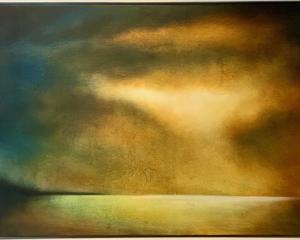Benjamin Britten's string quartets are highly regarded and have fabulous textures and soundscapes, according to Gillian Ansell of the New Zealand String Quartet.
The group will be performing two of his quartets and works that influenced him on their Bravo Britten! tour to celebrate the 100th anniversary of his birth.
They will be performing different programmes in Oamaru on Tuesday and Dunedin on Wednesday next week.
''We'd been talking about playing his quartets for years but there's always tons of stuff to do, but we saw the anniversary approaching some time ago so thought that's the year we do them,'' she said.
The String Quartet will play Britten's Quartet No 1 (1941) in Oamaru and his third, (1975) in Dunedin.
''[The third] is his last one, written near the end of his life. It's incredibly moving. I think it's because it is of an older man looking back and trying to sum up aspects of his life. There's a lot of openness about it.
"The first movement is called 'Duets' and it just starts with the two middle voices doing a very gentle rocking conversation between them. It's a bit hollow in a way, beautifully crafted, but it's not razzmatazz music at all.
"It's very personal although it does eventually hot up in that movement, it gets busy and fast, and there are brilliant other movements, fast and high energy.
''The third quartet is in five movements and two and four are virtuosic and fast, leaping about a lot and dramatic. They are spectacular and the last movement is again personal.
"There are a lot of moments of recitative, with other instruments holding tremolo notes and one person doing solos. It's very heartfelt and it ends up with a very slow, moving melody repeated many times. It's really touching,'' she said.
''Britten said later in his life, 'because I've written a lot and people have played it a lot, people think that I am very happy with everything I do, but in fact I'm still always striving for greater clarity'. That was one of his really big things, to have music transparent.''
''A transparent score is not filled up with black notes and one person may not play for a few bars. It's not go-go-go every second, even if it is a high-energy piece,'' she said.
The other works in the quartet's two concert programmes show some of the composers and works that influenced Britten (1913-76).
He was born in Suffolk, UK, and was a musical child, learning piano and viola, despite his father not allowing a gramophone or radio in the house. His mother was musical and when he was young he heard a piece by Frank Bridge which inspired him to write music.
Bridge later became his teacher, so the quartet is playing his Idyll No 1 (1906), Pieces No 2 and 3 (1904) in their Oamaru concert.
''Britten really strove for clarity in his writing and just getting the essence and no wasted notes, not filling it up with anything. Mozart is quintessentially perfect in that way, not a note too many,'' Ansell said.
The group plays Mozart's Quartet in Bb Major, K.589 (1790) in the first programme, along with Igor Stravinsky's Concertino (1920).
In the Dunedin programme, along with Henry Purcell's Two Fantasias (1684) and Franz Schubert's Quartettsatz in C Minor, D.703 (1820), the beginning of a quartet left unfinished at Schubert's death, is Ravel's Quartet in F Major (1903).
When Britten heard Quartet in F Major, he said it forever changed the way he wrote. ''It has beautiful melodies and harmonies but at the same time the textures are really interesting.
"It's like painting with sound. He's been called an Impressionist composer ... it's sort of like painting a scene with sound and I think Britten does that superbly, too.''
The quartet feels it has a mission to perform in smaller towns as well as larger ones, Ansell said.
''We feel even more strongly that we are connecting with smaller communities and that we are taking the gift of our music to them, whereas in the bigger places they get more options, but smaller places don't, so we feel it's more special.
The quartet also likes to perform at schools and will be doing this in Oamaru and Dunedin the morning after their concerts.
''We love playing for kids, too. You never know what an experience like that will do for a kid at an impressionable age. Doing a show that makes it look accessible or fun or beautiful or whatever can just open part of the mind or ears or make them want to play music.''
See it, hear it
The New Zealand String Quartet is giving its Bravo Britten! concerts at 7.30pm in Oamaru on September 10 at Pen-y-bryn Lodge and in Dunedin on September 11 at First Church. More information on www.nzsq.co.nz.












